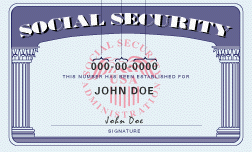
Early in his Senate career, Senator Mondale established his position regarding older citizens when he said, "The aged should not have to live in a world where dignity and pride are sacrificed for survival, where contentment is an unattainable luxury, and where hope is a myth and a mockery."[1] Through hearings he conducted as the Chairman of the Subcommittee on Retirement and the Individual, Senator Mondale became convinced of the need for people to prepare for retirement. He likened the failure to prepare to that of "allowing a child to grow to the age of 20 without schooling or training and then expecting him to be able to find a decent job and make a satisfactory adjustment in the work-a-day world." He emphasized the need to recognize retirement as a "distinct phase of life" and one of "life's toughest adjustments" and that "retirement from a job need not lead to retirement from life."[2] Senator Mondale introduced a bill in the 91st, 92nd, 93rd and 94th Congresses to provide federal employees with pre-retirement counseling and assistance and he introduced a bill in the 90th and 91st Congresses to establish an Institute on Retirement Income that would help "retired individuals to enjoy an adequate retirement income."
Senator Mondale was also a strong proponent for raising Social Security benefits and keeping Medicare and Medicaid premiums down. He was a strong and vocal opponent to any legislation that proposed raising premiums or cutting benefits, arguing that "older Americans, who have contributed a lifetime of work to this society, who have endured the depression and World War II, most of whom contributed to Social Security for years in anticipation of a dignified retirement, should not be humiliated in their latter years by lack of a minimum adequate income."[3] He was disappointed in the Social Security Amendments of 1967 Conference Report (H.R. 12080) calling it "one of the most backward, repressive, medieval pieces of legislation we have seen in a long time."[4] It granted a 12-1/2 percent increase to benefits rather than the 20 percent Senator Kennedy (D-MA) proposed and it did not protect against the cost of prescription medicines. He said that the legislation was "a sorry response to the needs of the elderly, the disabled, the blind, and the poor."[5]
He was a vocal critic of President Nixon's attempts to cut Social Security and Medicare benefits in the 1970s. When he introduced S. 3512, a fifteen-part plan that included protecting Social Security beneficiaries from inflation by automatically adjusting benefits, raising benefits by 25 percent, and getting rid of some premiums, he argued that "there is a serious danger that the elderly will be hoodwinked out of a large part of the benefit increase they deserve, and which the country can afford. This may happen because President Nixon wants to use a large chunk of the money which should go to the elderly to hide his huge budget deficits. This is completely unfair to our senior citizens."[6] And when Congress voted in favor of a 20 percent increase "across-the-board," he supported Senate Resolution 367, preventing President Nixon from getting credit for the increase. Senator Mondale stated, "It has been the consistent view of this administration that it is somehow 'fiscally irresponsible' to make life decent and bearable for millions of elderly Americans. In light of this record, there is no justification for President Nixon claiming credit for the increase they will find in their social security envelopes in October."[7] He continued to fight against President Nixon's attempts to raise Medicare premiums by introducing Senate Concurrent Resolution 18, which expressed opposition to the President's proposed cuts and called the President's attempts "another example of the mistaken priorities of this administration."[8]
In addition to supporting legislation that provided financial security for the elderly, Senator Mondale also focused on legislation that would provide a better quality of life for the elderly. He was a strong proponent of community programs and continuing education for the elderly. He cosponsored S. 3181 in the 92nd Congress, establishing of an Office for the Aging in the Office of the President, and he cosponsored S. 3926, establishing the National Senior Service Corps. Towards the end of the 94th Congress, his last full session, Senator Mondale introduced S. 2497, amending the Higher Education Act of 1975 to encourage programs in lifetime learning. In his introduction, he states, "Senior citizens ... have often been excluded from the academic community in the past. They would be offered exciting new alternatives through participation in educational programs. In a society with a population of 23 million over the age of 65, and increasing life expectancy, the significance of providing productive options for the elderly cannot be overestimated."[9]
Through his support for and introduction of legislation to provide financial security and quality of life for the elderly, Senator Mondale ensured that, indeed, "The aged should not have to live in a world where dignity and pride are sacrificed for survival, where contentment is an unattainable luxury, and where hope is a myth and a mockery."[10]
- 89th Cong., 1st sess., Congressional Record 111 (July 9, 1965) at 16145.
- 91st Cong., 1st sess., Congressional Record 115 (July 7, 1969) at 18419.
- 92nd Cong., 1st sess., Congressional Record 117 (July 20, 1971) at 26133.
- 90th Cong., 1st sess., Congressional Record 113 (December 8, 1967) at 35640.
- 90th Cong., 1st sess., Congressional Record 113 (December 14, 1967): at 36813.
- 92nd Cong., 2nd sess., Congressional Record 118 (April 19, 1972): at 13381.
- 92nd Cong., 2nd sess., Congressional Record 118 (September 19, 1972) at 31139.
- 93rd Cong., 1st sess., Congressional Record 119 (March 1, 1973): at 6088.
- 94th Cong., 1st sess., Congressional Record 121 (October 8, 1975) at 32182.
- 89th Cong., 1st sess., Congressional Record 111 (July 9, 1965): at 16146.